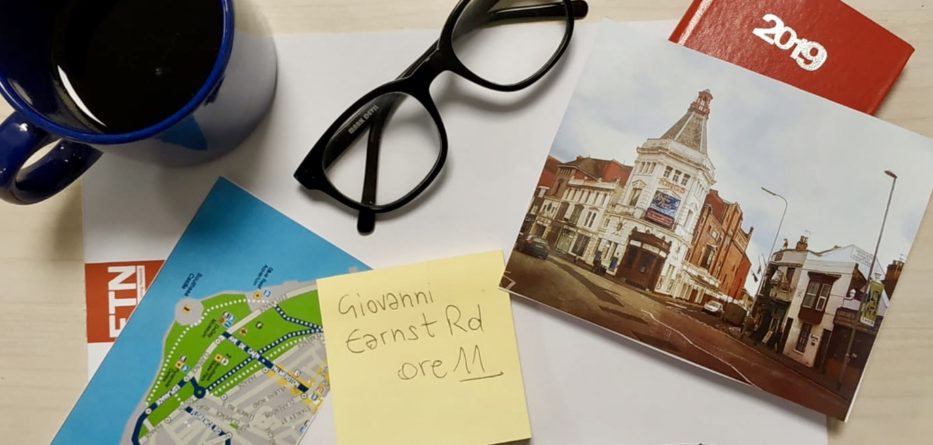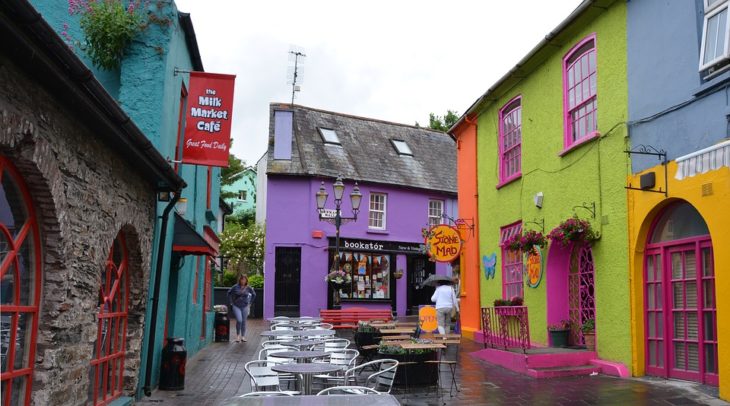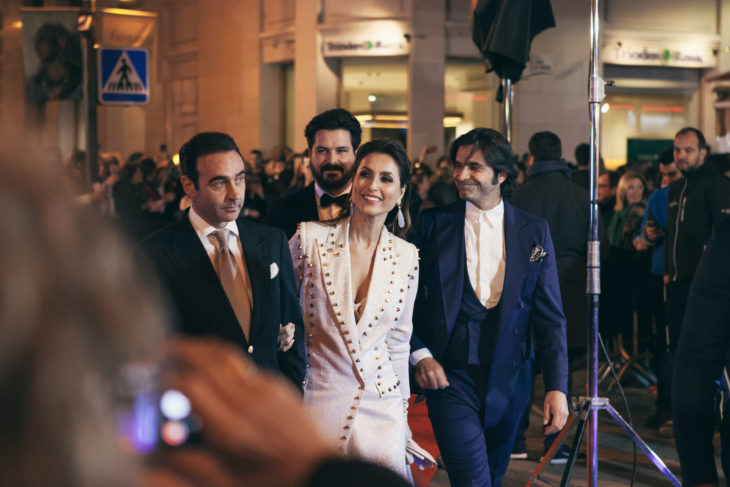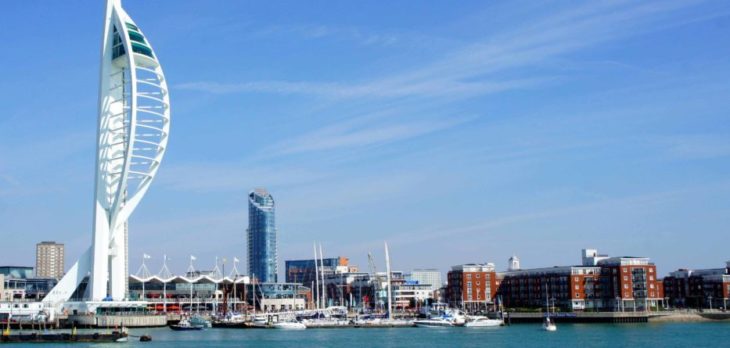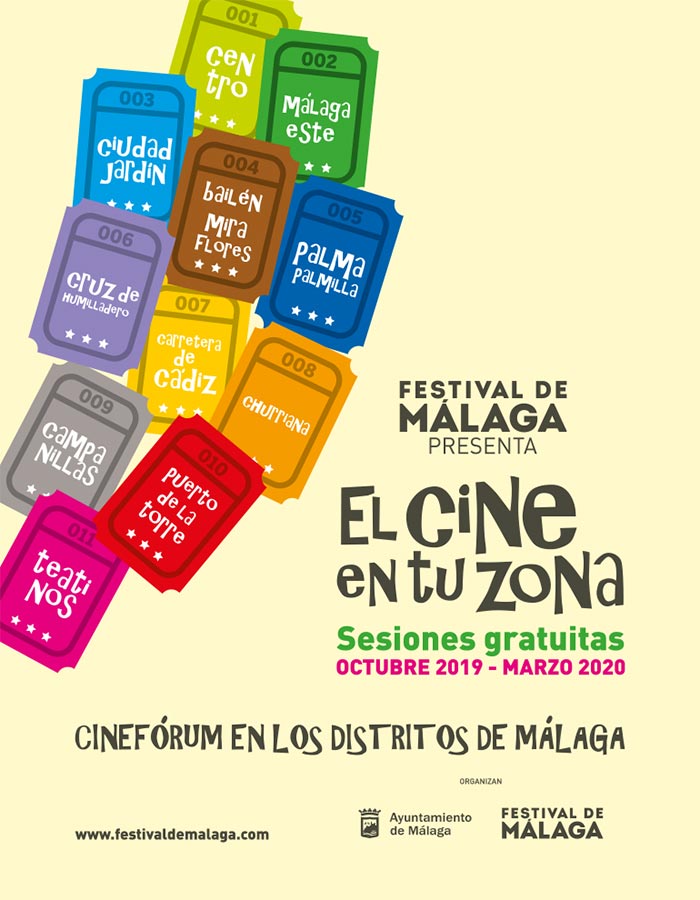Portsmouth is located in the county of Hampshire, on the southern coast of the United Kingdom. It’s a melancholic but not gray city, with an iron will and a sky as intense as a newborn love.
A two-hour bus ride from London, Portsmouth represents a fair compromise for those who love introspection but on Saturday do not disdain a cozy chat at the pub: between a wife waiting and a toast to the health of the ancient sailors (its harbour, the Historic Dockyard, is one of the most important of the Royal Navy and houses 800 years of British naval history) the euphoria soon becomes a romantic nostalgia that here, never rhymes with regret but turns into a quiet stroll home.
It’s Monday morning and with a headache in my pocket, I take the bus to Earnst Road where I will meet Giovanni, a student from Hospitality Institute in Florence.
He is 17 years old and he is based in Portsmouth thanks to the Erasmus+ project.
Together with his young colleagues, he will do a 3-week internship at the King’s Theater, one of Portsmouth’s oldest and most glorious theaters.
His role? Receptionist with a license to learn and deepen English and people.
After a brief embarrassment and a loooooong coffee with donuts, he starts talking about his experience, from the carefree start despite it was his first time on a plane to the first days of training. The words overlap, in a mixture of enthusiasm and surprise and he tortured his beard while he describes his first days in England.
He shows me his Instagram profile: the photo in front of Dickens’s house at 393 Old Commercial Road, shot for his father, a literature teacher; the journey by plane and the world from a porthole, the funny faces with his peers and even the anxiety of the teacher, all in one picture.
He likes Portsmouth, gentle and human, cold but not glacial.
There are no balconies and he loves terraced houses, all tidy with useful entrance to shake off the remains of the day just passed; and then the churches and the tree-lined avenue to go to Kings’Theater.
He is fascinated by the inhabitants’ accent and their kindness in front of his initial doubts about the “real English”, the one spoken on the street and by the barber, what allows you to understand when a fight is about to break out and it’s time to go home, the one spoken by your colleague who tells you about his busy days.
On the weekend, when he is not in London to distribute “wow” and collect “like” (a picture in front of the National Gallery is worth at least 30 likes) he takes a taxi and goes to the harbour, where he imagines being the protagonist of Heart of Darkness.
Then a tour of the shops to compare prices and existences, imagine stories and turn instants into snapshots.
No, no homesickness, because in a week it will be Florence and “daily routine” again while here everything rhymes with wonder.
At King’s Theater he has made friends with Julia, the Scottish colleague at the box office. She looks like his best friend; here, most people remind him of someone he knows, as if his brain used this trick to make it easier for him to adapt.
During the lunch breaks, Julia corrects his pronunciation, in return Giovanni teaches her some sentences in Italian. “We are only friends”, he assures me while looking away, also because “MMy suitcase is full and love would not fit”. I smile and, while I order another coffee, I secretly envy him for the bravado.
We’ve been here for two hours and it’s time to say goodbye.
Together with him I wait for the bus that arrives with the usual admirable
British precision.
We shake hands with a convinced “see you later”, then a final nod as I see him disappear between the doors of the double decker bus, last stop King’s Theater, next exit: FUTURE

